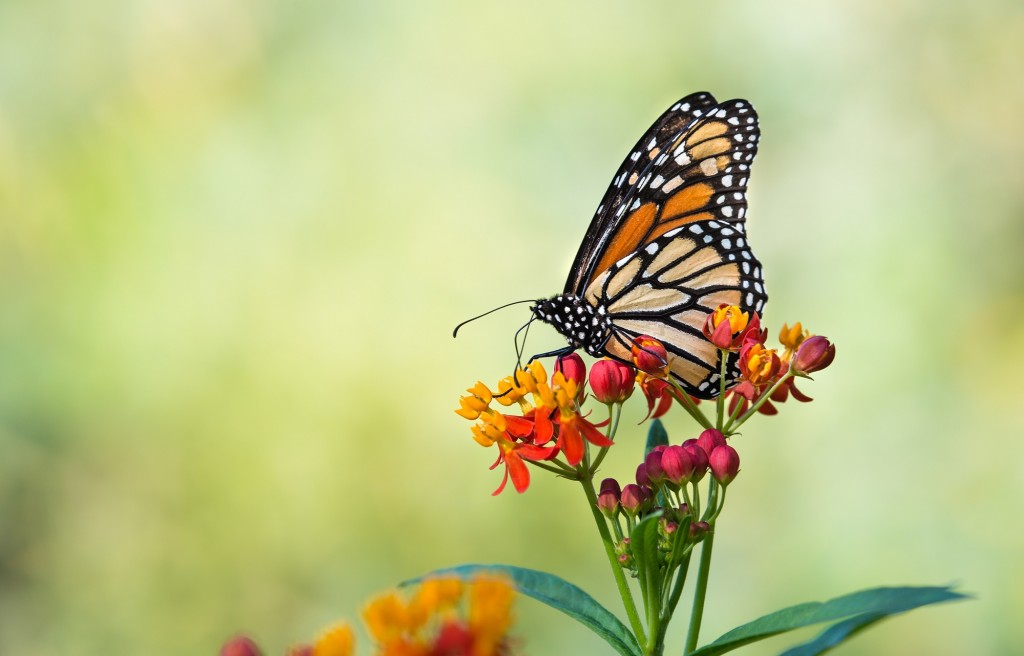A Sculpture To Help Monarch Butterflies Make Their Journey
ArtandSeek.net July 22, 2020 19Every day on Art&Seek, we’re talking to people who have tips on art in the time of social distancing. Share yours with us on Facebook, Instagram, or @artandseek on Twitter. Click above to hear Sofia Bastidas, curator at SMU’s Pollock Gallery, share her tip with KERA’s Nilufer Arsala.
Twice a year, monarch butterflies make their way through Texas as they make the trek to breeding grounds in the north and then back south to Mexico for the winter. Along their journey, the monarch butterfly depends on the milkweed plant to lay eggs. When those eggs hatch, milkweed is the only plant monarch caterpillars eat. Over the years, human-caused changes have decimated the milkweed plant which has contributed to a precipitous decline in the monarch butterfly population.
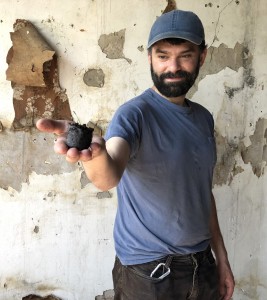
Artist Erik DeLuca holding a milkweed plant in his makeshift nursery in Corsicana. Photo by Kyle Hobratschk.
Sound artist Erik DeLuca became aware of the monarch’s plight while he was a resident artist at 100 West, the Corsicana Artist & Writer Residency program in Corsicana. While staying there, DeLuca came up with the social and environmental sculpture, The Staff of Asclepias – a series of way stations for the monarch butterfly.
The title of the exhibition is drawn from Asclepias, the Greek god of medicine and health. He is often depicted holding a serpent entwined staff. The milkweed plant also gets its scientific name from him.
Video courtesy of Corsicana Artist & Writer Residency.
It’s a social sculpture because so many people were involved to make the project happen. Collaborators on the project include SMU’s Pollock Gallery; Sweet Pass Sculpture Park in West Dallas; Corsicana Artist & Writer Residency; and publishing initiative RISO BAR. Sofia Bastidas with SMU’s Pollock Gallery is one of the curators of the exhibition.
“There were a lot of people that participated in this endeavor, to make it possible,” said Bastidas. “And because it is a recreating and rethinking the possibilities of a sculpture just as a prop that you put in a place. Rather, you are creating a greater understanding around the monarch butterfly and its migratory pattern.”
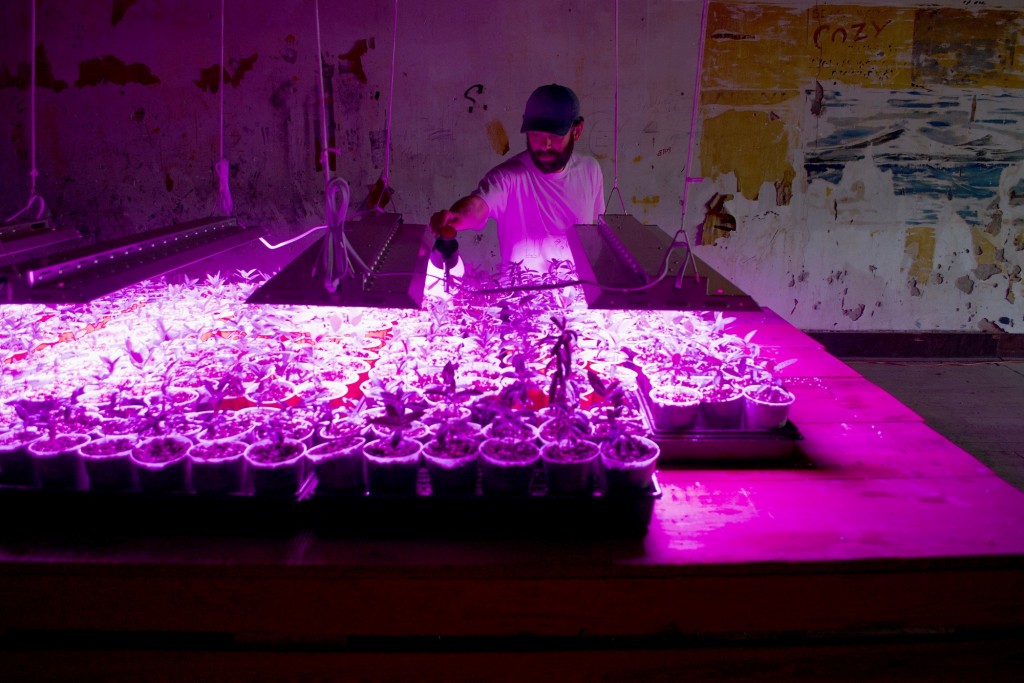
Erik DeLuca grows 1,000 milkweed plants in his indoor nursery in Corsicana. Photo by Kyle Hobratschk.
The Staff of Asclepias was produced in several locations. Two iterations of the project can be viewed by the public while observing social distancing either by driving by or by appointment.
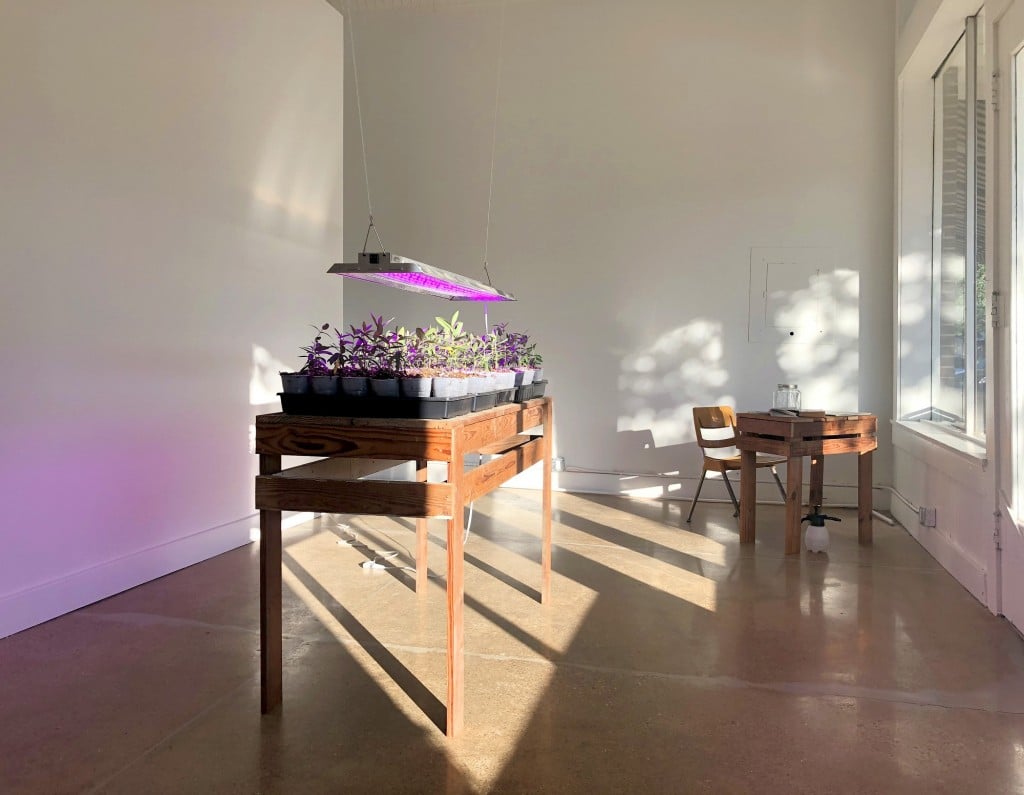
Photo by Kyle Hobratschk.
The Anteroom is the storefront gallery across from 100 West in Corsicana. Through the glass window, you can see a sample table with the milkweed plants and the magenta growing lights DeLuca used to grow 1,000 milkweed plants.
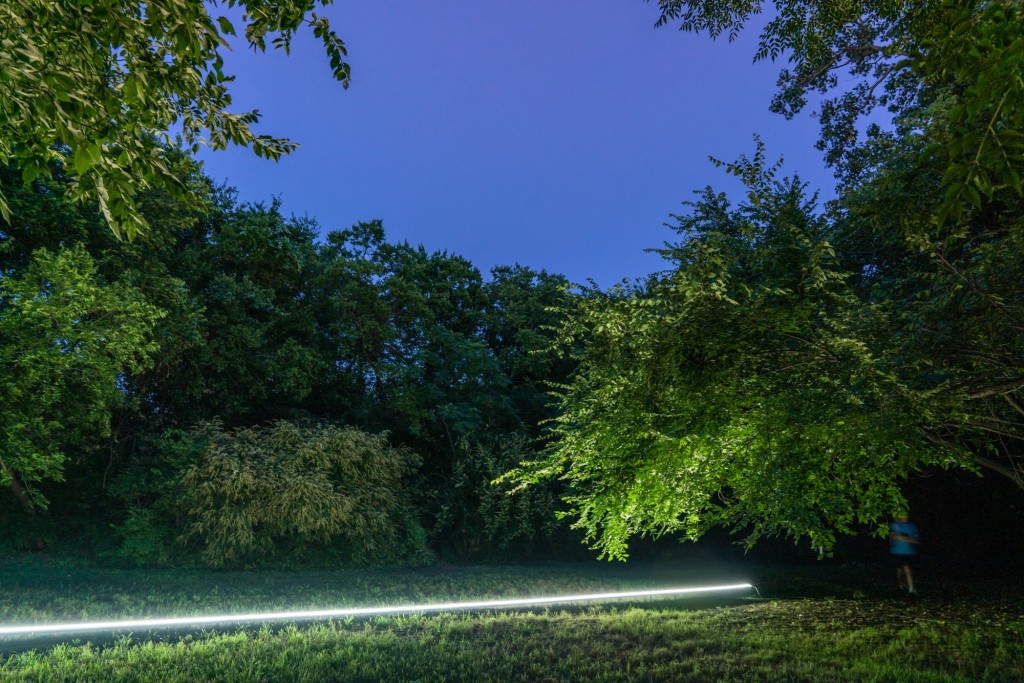
Photo by Trey Burns.
In West Dallas at Sweet Pass Sculpture Park, you can see a cluster of milkweed plants accompanied by a light and sound sculpture that activates during sunrise and sunset. The light, or staff, runs north to south so it illuminates the migratory path of the monarch.
The sound visitors hear is a rendition of the song “Sunrise, Sunset” from Fiddler on the Roof. It can also be heard playing at the Anteroom at dawn and dusk.
DeLuca sees a lot of symbolism between the resiliency of the Jewish people who have migrated throughout the world and the migration and resiliency of the monarch.
Got a tip? Email Gila Espinoza at gespinoza@kera.org. You can follow her on Twitter @espinoza_kera.
Art&Seek is made possible through the generosity of our members. If you find this reporting valuable, consider making a tax-deductible gift today. Thank you.

